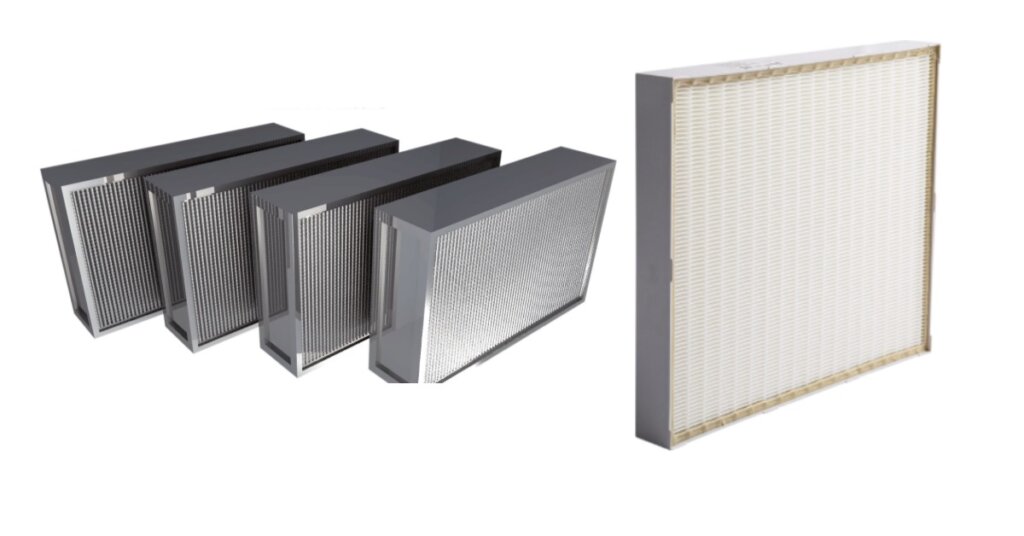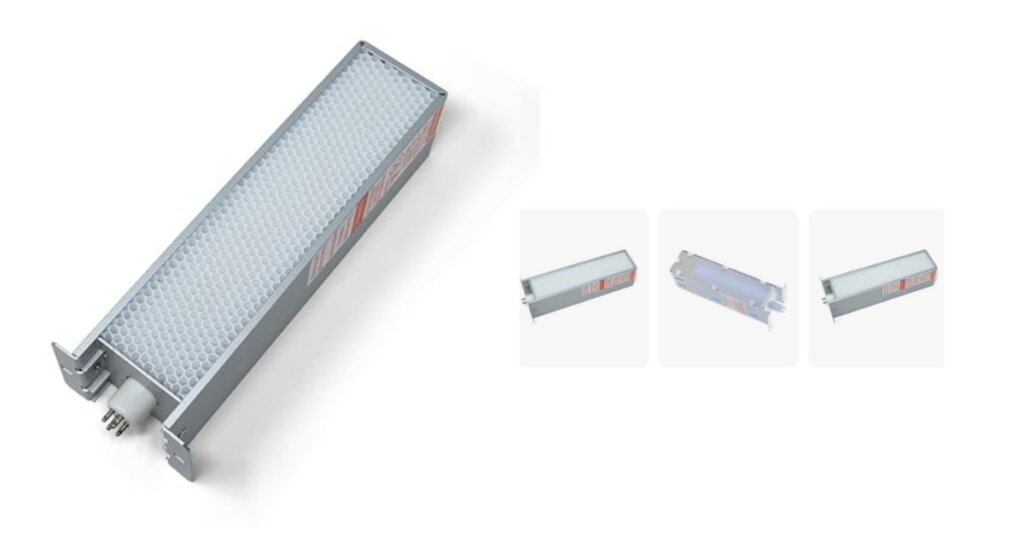Have you ever stood in front of an air purifier and thought: “What’s the real difference between these filters? PCO vs HEPA Filter” It’s a question that many people ask when trying to improve their indoor air quality. Both technologies are popular, yet they work in very different ways. While HEPA filters have long been the standard for trapping dust, pollen, and pet dander, PCO filters use advanced photocatalytic oxidation to break down harmful pollutants at a molecular level. Understanding these differences is the key to making the right choice for your home or office.
When we think about air purification, most of us want something that not only clears visible dust but also handles the invisible threats—like bacteria, viruses, and chemical fumes. That’s where the debate between PCO and HEPA becomes interesting. HEPA is highly efficient at capturing particles, while PCO goes a step further by neutralizing gases, odors, and microorganisms. This difference in approach often leaves buyers wondering which one is more effective for their unique needs.
So, let’s break it down like a friendly chat. I’ll walk you through what these filters are, how they work, their pros and cons, and which one is right for you depending on your needs. By the end of this, you’ll be able to make a confident choice without second-guessing.
Key Takeaways Table for PCO vs HEPA Filter
| Aspect | HEPA Filter ✅ | PCO Filter ✅ |
|---|---|---|
| Best for Allergies & Asthma | Yes | No |
| Removes Dust, Pollen, Dander | Yes | No |
| Removes Odors & VOCs | No | Yes |
| Captures Bacteria/Viruses | Traps them | Destroys them |
| Ongoing Maintenance | Higher | Lower |
| Cost Over Time | Higher | Lower |
| Speed of Action | Immediate | Slower |
| Safety | Very Safe | Check ozone levels |
What Exactly Is a HEPA Filter?
If you’ve ever browsed through air purifiers, you’ve definitely seen the word HEPA filter thrown around like confetti. HEPA stands for High-Efficiency Particulate Air.

Here’s the fun part: it’s not just a marketing term—it’s an actual standard. For a filter to be labeled “HEPA,” it must remove at least 99.97% of particles as small as 0.3 microns. To put that in perspective, a human hair is about 70 microns wide. So yeah, a HEPA filter is catching the tiniest troublemakers floating in your air, like dust, pollen, smoke, and pet dander.
Think of it as a really fine net. It doesn’t destroy particles, it simply traps them and keeps them locked away. That’s why people with allergies or asthma often swear by HEPA-based purifiers.
What Is a PCO Filter?
Now, PCO stands for Photocatalytic Oxidation. Sounds like something out of a science lab, right? And that’s because it kind of is.

PCO filters use UV light + a catalyst (usually titanium dioxide) to break down pollutants at a molecular level. Instead of trapping particles like a HEPA filter does, a PCO filter actually destroys contaminants, turning harmful VOCs (volatile organic compounds), bacteria, and odors into harmless byproducts like water and carbon dioxide.
It’s almost like having a microscopic cleanup crew inside your purifier that disassembles pollutants molecule by molecule. Pretty futuristic!
PCO vs HEPA Filter: The Core Differences
Okay, let’s pause and compare PCO vs HEPA filter head-to-head in simple terms:
- HEPA Filter → Works like a net. Captures particles and keeps them stuck.
- PCO Filter → Works like a chemical reaction. Breaks pollutants down and neutralizes them.
If HEPA is the sponge that soaks up dirt, PCO is the detergent that scrubs it away.
But here’s the thing: because they work so differently, their effectiveness varies depending on the type of pollutant you’re dealing with.
How Each Technology Works in Real Life
Imagine you walk into your home after cooking fish. The air feels heavy with odors.
- A HEPA filter? It won’t do much. It doesn’t neutralize smells—it’s focused on solid particles like dust or pet hair.
- A PCO filter? This is where it shines. PCO can reduce smells and volatile compounds, leaving the room fresher.
Now switch the situation: you’re sneezing like crazy because of spring pollen.
- A HEPA filter will be your best friend—it captures pollen like a champ.
- A PCO filter, however, won’t be as effective because pollen is a particle, not a gas.
See the pattern? One isn’t automatically better—it’s about matching the filter to your problem.
The Advantages of HEPA Filters
So why do HEPA filters get so much love? Well, here are some reasons:
- Allergy and asthma relief → Captures pollen, dust mites, pet dander.
- Smoke particles → Great for wildfire smoke or cigarette smoke particles.
- Proven standard → HEPA is an industry benchmark with decades of research behind it.
- Immediate effect → As soon as air passes through, particles are physically trapped.
When it comes to everyday pollutants, HEPA filters are reliable and predictable.
The Limitations of HEPA Filters
But no technology is perfect, right? Here are the drawbacks:
- Can’t remove gases or odors → VOCs, cooking smells, or chemical fumes pass right through.
- Need replacement → Filters eventually clog and must be replaced every 6–12 months.
- Not self-cleaning → The dirt stays inside until you swap it out.
- Bulky → HEPA filters can be larger, making some purifiers heavier or noisier.
So, if you’re expecting your HEPA filter to clear out paint fumes, you’ll probably be disappointed.
The Advantages of PCO Filters
Now let’s talk about why PCO filters have gained so much attention:
- Destroys pollutants instead of just trapping them → Bacteria, viruses, and VOCs are broken down.
- Great for odors → Perfect for kitchens, basements, or homes with pets.
- Low maintenance → No need for constant filter changes.
- Long-lasting → Some PCO filters last for years before needing replacement.
This makes them appealing for people who deal with odor-heavy environments or chemical sensitivities.
The Limitations of PCO Filters
But, again, nothing’s flawless:
- Slower at cleaning air compared to HEPA, which physically traps particles instantly.
- Doesn’t capture allergens well → Dust, pollen, and dander are not its strong point.
- Potential ozone production (in some older models) → Though newer PCO filters are safer, it’s something to check before buying.
- Higher upfront cost → Many PCO purifiers are pricier than HEPA ones.
So while the science is impressive, PCO isn’t always the practical everyday choice for everyone.
Cost Comparison: PCO vs HEPA Filter
Let’s be honest—budget plays a big role in most decisions.
- HEPA filters → The machines themselves can be affordable, but replacement filters every 6–12 months can add up. Think of it like printer cartridges—cheap machine, ongoing expenses.
- PCO filters → Higher initial cost but fewer replacements. It’s more of a “pay once, relax later” situation.
If you hate recurring expenses, PCO might appeal to you. But if you want something budget-friendly upfront, HEPA is safer.
Safety Concerns You Should Know
One of the most asked questions: “Are these filters safe?”
- HEPA filters → Totally safe. They’re just nets trapping particles. Nothing is released back.
- PCO filters → Most are safe today, but older or low-quality models sometimes produced small amounts of ozone, which isn’t ideal for lungs. Always look for CARB-certified purifiers if you’re buying PCO.
Which One Works Better for Allergies?
If you’re someone who sneezes every spring or struggles with dust: HEPA wins. Hands down.
Because allergies are triggered by particles like pollen, dust, or pet dander, a HEPA filter captures them efficiently. PCO filters simply aren’t built for that.
Which One Works Better for Mold, Bacteria, and Viruses?
Here’s where PCO filters fight back.
They can neutralize microorganisms like bacteria, mold spores, and some viruses by breaking them apart. HEPA filters can trap them, yes, but they’re still “alive” inside the filter until you replace it.
If your concern is germs or moldy smells, PCO filters are more effective.
Energy Efficiency Face-Off
- HEPA filters → Rely on fans to pull air through dense material. This can use more energy, especially on high-speed settings.
- PCO filters → Usually need a UV light running, but the energy use is modest.
Overall, neither will explode your electric bill, but PCO tends to be slightly more energy-efficient over time.
Maintenance & Lifespan: What to Expect
- HEPA filters → Need replacements every 6–12 months depending on usage. Maintenance is easy but frequent.
- PCO filters → Some last for years with just occasional cleaning.
So if you’re someone who forgets about maintenance, a PCO purifier might save you headaches.
Hybrid Purifiers: Do You Really Need Both?
Here’s an interesting twist: many modern purifiers combine HEPA + PCO filters.
Why? Because they complement each other’s weaknesses:
- HEPA handles allergens and particles.
- PCO handles VOCs, bacteria, and odors.
If budget isn’t a big issue and you want the “best of both worlds,” a hybrid purifier can be worth it.
Final Thoughts: Making the Smart Choice
So, when it comes down to PCO vs HEPA filter, the question isn’t really “which one is better?” but rather “which one is better for you?”
- If your main issue is allergies, asthma, or dust, stick with a HEPA filter.
- If you’re battling odors, VOCs, mold, or germs, then a PCO filter might be the smarter move.
- And if you want a one-size-fits-all solution, a hybrid purifier gives you the strengths of both.
At the end of the day, clean air isn’t a luxury—it’s something we all deserve. Choosing the right filter means you’re not just buying a machine; you’re investing in your health, your comfort, and your peace of mind.
So, next time someone asks you about PCO vs HEPA filter, you’ll be ready to explain it like a pro—without drowning in technical jargon.
FAQ on PCO vs HEPA Filter
What is the difference between PCO and HEPA?
The difference lies in how they work. A HEPA filter traps particles like dust, pollen, and pet dander in a dense mesh, while a PCO filter uses UV light and a catalyst to break down pollutants such as odors, bacteria, and gases at a molecular level.
Which filter is better than HEPA?
It depends on your needs. HEPA is the gold standard for capturing allergens and fine particles. However, if you want to remove odors, VOCs, or germs, a PCO filter may be more effective. Many modern air purifiers combine HEPA with other technologies for the best results.
Are PCO air purifiers safe?
Yes, most modern PCO air purifiers are safe. The concern is that some older or cheap PCO models can produce small amounts of ozone. To be safe, always choose a purifier that is ozone-free or CARB-certified.
Does PCO create ozone?
Some older or low-quality PCO filters may produce a small amount of ozone as a byproduct. However, newer and well-designed PCO purifiers are made to be safe and ozone-free. Always check the product specifications before buying.
Do PCO filters remove odors?
Yes, PCO filters are excellent at reducing odors and gases, making them ideal for kitchens, basements, or places with strong smells.
Can I use both PCO and HEPA together?
Yes! Some air purifiers combine both technologies. This way, you get the best of both worlds—HEPA for particles and PCO for odors and microorganisms.
DheerajSonwane is a dedicated writer with expertise in air purification technologies. He focuses on providing well-researched content to help readers improve indoor air quality in homes and businesses. As the lead writer at AirPurifierMaster.com, Dheeraj offers practical advice his insightful reviews guide individuals in choosing the best air purifiers for their needs.

